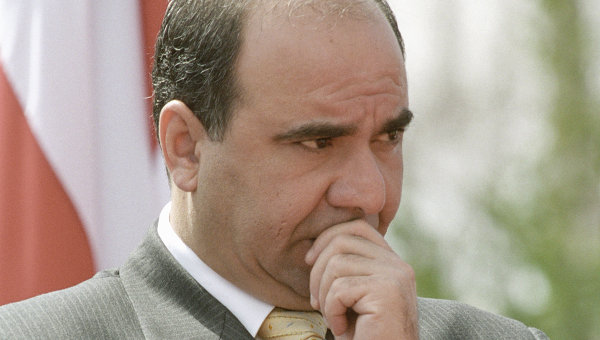Immediately after the meeting of the Armenian and Georgian foreign ministers in the framework of the Georgian Foreign Minister's official visit to Yerevan, the Armenian media reported with reference to Edward Nalbandian, that the Karabakh conflict was "one of the topics discussed" during the meeting with Mikhail Janelidze. In particular, they actively cited Nalbandian's statement that he "informed the Georgian colleague about the activities of Armenia and the co-chairs of the OSCE Minsk Group aimed at settling the Karabakh problem."
A special emphasis was placed on the phrase about Karabakh as a "discussed topic". But this formulation implies the participation of both sides in the "discussion of the topic", not just a minister informing his colleague, especially given Nalbandian's other vague statement that Georgia "provides the long-term support to the activities of the OSCE Minsk Group co-chairs" . Now Georgian observers are wondering, which "long-term support" was meant.
Information on the discussion of the Karabakh issue in Yerevan caused great interest in Georgia.The Georgian government has always been sensitive to this issue. The authorities changed - from the nationalist Zviad Gamsakhurdia to the billionaire Bidzina Ivanishvili - but the Georgian politicians have showed an enviable continuity in this issue, trying to preserve equidistance and being characterized by the whole 'do no harm' thing. The principle of non-intervention was considered the best method of implementing this principle.

The only case when the Nagorno-Karabakh conflict caused a diplomatic incident between Baku and Tbilisi was the story that took place more than 20 years ago when the chairman of the Georgian parliament Zurab Zhvania mentioned 'the so-called Nagorno-Karabakh Republic', expressing the opinion on the expediency of inviting its representatives, together with the leaders of Abkhazia and South Ossetia, as well as the leaders of Armenia and Azerbaijan, to discuss the 'Peaceful Caucasus' concept in Tbilisi. On the same day, the chairman of the Azerbaijani Parliament called Zhvania, a 'frank conversation' took place between them, after which the speaker of the Georgian parliament never again mentioned Nagorno-Karabakh during his political career.
It is interesting that there is not a word about discussing the topic of Nagorno-Karabakh in the Georgian Foreign Ministry's statement about the Minister Janelidze's visit to Yerevan. The press release, which contains a brief summary of the topics discussed by the heads of diplomatic departments, only says that the ministers discussed the further development of bilateral relations in the economic, transport and humanitarian spheres.
On the other hand, the Georgian Foreign Minister was received at the highest level in Yerevan: Armenian President Serzh Sargsyan and Prime Minister Karen Karapetyan held a face-to-face meeting with Mikhail Janelidze. After speaking with the Georgian minister, the Armenian prime minister opened the veil of secrecy over his statement, made during the February visit to Tbilisi. Karapetyan said then that Georgia and Armenia "found an alternative" to the Georgian Military road for a stable connection between Armenia and the Russian Federation. Now it turns out that under the "alternative" they meant the Gori-Tskhinvali-Vladikavkaz highway, as many experts thought, but the development of the Poti-Novorossiysk ferry. At the same time, Georgia agreed to reduce ferry and rail freight tariffs for Armenia in comparison with those operating until January 2017. "Tariffs were down by 32-35%, and by 52-54% in the direction Yerevan-Moscow, depending on the type of cargo," the head of the Cabinet of Ministers of Armenia stressed.
On a noteworthy coincidence, on the same day the Georgian Energy Ministry said that Tbilisi would refuse to purchase Russian gas until the end of the year, although they have such an option due to a recent agreement signed with Gazprom. Thus, Tbilisi demonstrates Baku, where it closely follows its policy of "compliance with the balance", that it continues to consider Azerbaijan its strategic partner, including SOCAR.






